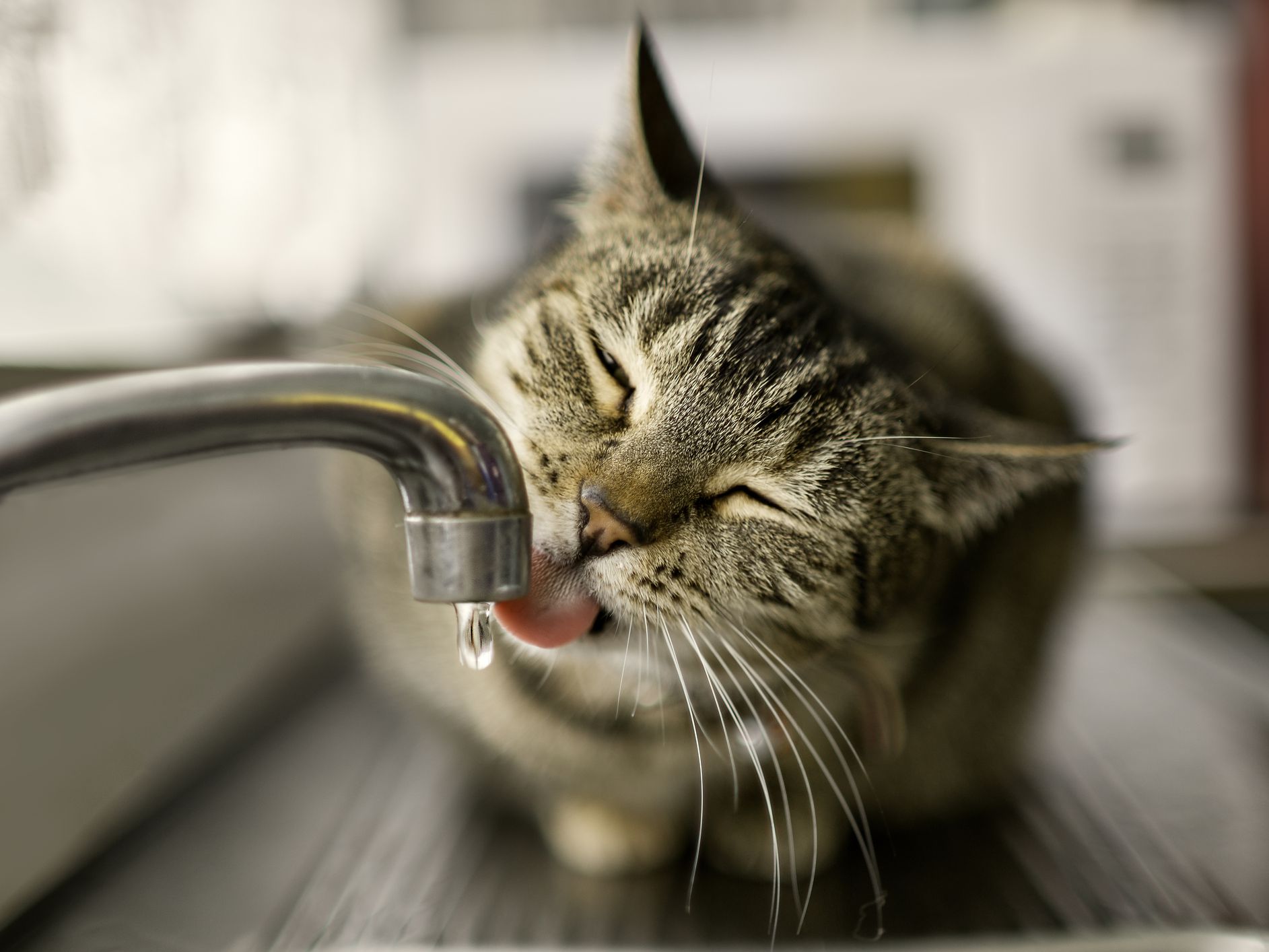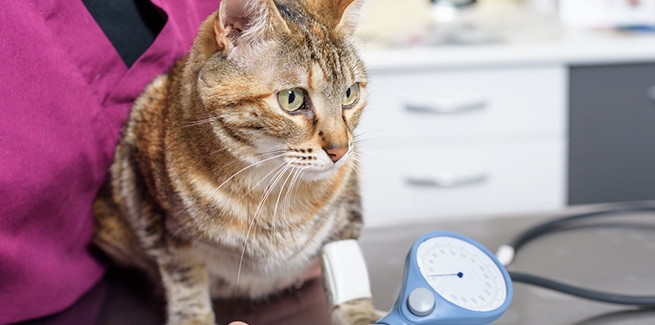
Chronic kidney disease is one of the most common conditions affecting older cats. It occurs when there are long-standing, irreversible changes to the kidneys that impair their ability to filter and remove waste products from the blood.
Chronic kidney disease can occur in cats of any age, but is most commonly seen in middle to older cats. Approximately 30% cats older than 15 years of age have some degree of chronic kidney disease.
In most cases of chronic kidney disease, the exact cause is unknown. There are, however, some well-recognised causes of chronic kidney disease, including:
Kidney disease may also develop secondary to other diseases, such as cardiac disease, dental disease and high blood pressure.

In most cases, chronic kidney disease is a progressive disease with a slow, insidious onset. The most common signs seen in affected cats:
Other signs may include vomiting, bad smelling breath and ulceration in the mouth.
Diagnosis of chronic kidney disease is made by collection of blood and urine samples. Typically, there will be dilute urine, as the kidney loses its ability to concentrate urine. In renal failure, the concentration of substances in the blood (creatinine, urea, SDMA) will often be increased, as the kidneys have a reduced ability to filter these waste products from the bloodstream. Other blood changes may include: anaemia (reduction in red blood cells), low potassium and high phosphate. Blood pressure testing is often performed, as chronic kidney disease can cause high blood pressure. Some cats may require further testing such as urine culture for infection, an abdominal ultrasound, abdominal xrays and/or a kidney biopsy, depending on the cause of the kidney disease.

In some cases, a specific cause for the chronic kidney disease may be identified and treatment can be directed at this cause. In most cases, however, a cause will not be identified and treatment is aimed at managing the rate of progression of the disease.
Some cats may require initial hospitalisation and fluid therapy to correct dehydration and improve appetite. Once stable, treatment is aimed at supporting kidney function and minimising the complications of kidney disease.
Dietary management is the mainstay of chronic kidney disease treatment. An ideal diet should have a low protein and low phosphate content. Prescription diets are available in both dry and tinned form.
Other therapeutic options which may be recommended include:
Most cats require regular monitoring to monitor progression and assist in management of their kidney disease. This may involve repeat blood and urine tests and blood pressure measurements periodically every 3-6 months, depending on the severity & rate of progression of kidney disease.